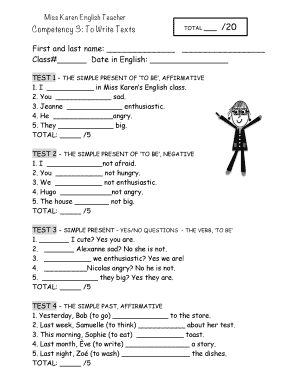
Grade 5 English Exam Papers and Memos
Introduction:
Grade 5 English exam papers and memos play a crucial role in evaluating students’ grasp of the English language and their ability to effectively communicate in written and spoken form. In South Africa, these assessments hold significant importance in the academic journey of students, serving as benchmarks for their progress and understanding of the subject matter. This comprehensive overview delves into the key aspects of Grade 5 English exam papers and memos within the South African context, exploring their structure, content, assessment criteria, and the significance they hold in the educational landscape.
Structure and Content of Grade 5 English Exam Papers:
Grade 5 English exam papers in South Africa typically consist of two sections:
- Language Section: This section focuses on assessing students’ proficiency in various aspects of the English language, including grammar, punctuation, spelling, and vocabulary. It may include questions such as identifying parts of speech, correcting sentences for grammatical errors, and filling in the blanks with appropriate words.
- Literature Section: This section evaluates students’ understanding and appreciation of literary texts, such as poems, stories, and plays. It may include questions that require students to analyze characters, identify themes, interpret figurative language, and write their own creative pieces inspired by the texts.
Assessment Criteria for Grade 5 English Exams:
The assessment criteria for Grade 5 English exams in South Africa are designed to evaluate students’ overall language skills and their ability to engage with literary texts effectively. These criteria typically include:
- Accuracy: Students are assessed on their accuracy in using grammar, punctuation, spelling, and vocabulary. This includes their ability to identify and correct errors in sentences and to use appropriate language structures and conventions.
- Comprehension: Students’ ability to understand and interpret literary texts is evaluated through their responses to questions about characters, themes, and plot elements. They are also assessed on their ability to identify and explain figurative language and other literary devices.
- Critical Thinking: Students are expected to demonstrate critical thinking skills by analyzing and evaluating literary texts, identifying and explaining the author’s purpose and point of view, and making connections between the text and their own experiences or other works of literature.
- Creativity: In some instances, students may be required to demonstrate creativity by writing their own poems, stories, or plays, or by engaging in other creative activities that showcase their understanding of the English language and literature.
Significance of Grade 5 English Exam Papers and Memos:
Grade 5 English exam papers and memos hold significant value in the South African educational system for several reasons:
- Assessment of Learning: These assessments serve as a means to evaluate students’ progress and mastery of the English language skills and knowledge they have acquired throughout the academic year. They provide teachers with valuable feedback on students’ strengths and areas for improvement, allowing them to tailor their teaching strategies accordingly.
- Accountability: Exam papers and memos contribute to ensuring accountability in the educational system by providing a standardized measure of student achievement. They help ensure that all students are assessed fairly and consistently against the same criteria, promoting transparency and equity in the evaluation process.
- Preparation for Future Academic Pursuits: Success in Grade 5 English exams is often seen as a prerequisite for further academic success, as it demonstrates a student’s readiness for more advanced levels of English language learning and literary analysis. These exams help prepare students for the challenges they will face in secondary school and beyond.
- Diagnostic and Remedial Purposes: The results of Grade 5 English exams can be used to identify students who may need additional support or remedial intervention. By analyzing patterns of errors or weaknesses in students’ responses, teachers can design targeted interventions to address specific areas of difficulty, ensuring that all students have the opportunity to succeed.
Conclusion:
Grade 5 English exam papers and memos play a vital role in the South African education system, serving as tools for assessing students’ language proficiency and literary understanding. The structure, content, and assessment criteria of these exams are designed to evaluate students’ overall language skills, critical thinking abilities, and creativity. These assessments hold significance in terms of assessing learning, ensuring accountability, preparing students for future academic pursuits, and providing opportunities for diagnostic and remedial interventions. By understanding the intricacies of Grade 5 English exam papers and memos, educators and stakeholders can contribute to the effective teaching and learning of English in South African schools.
